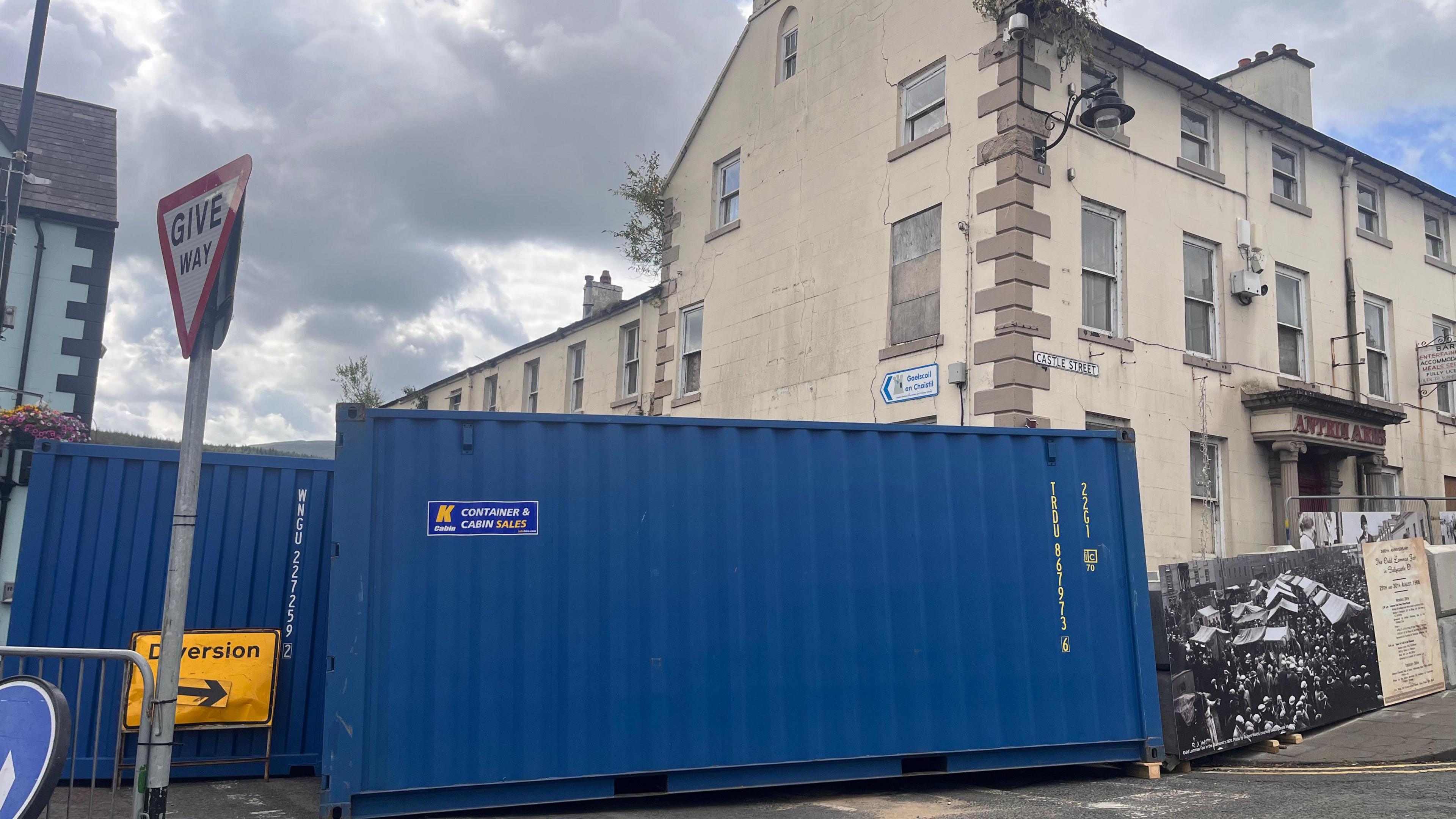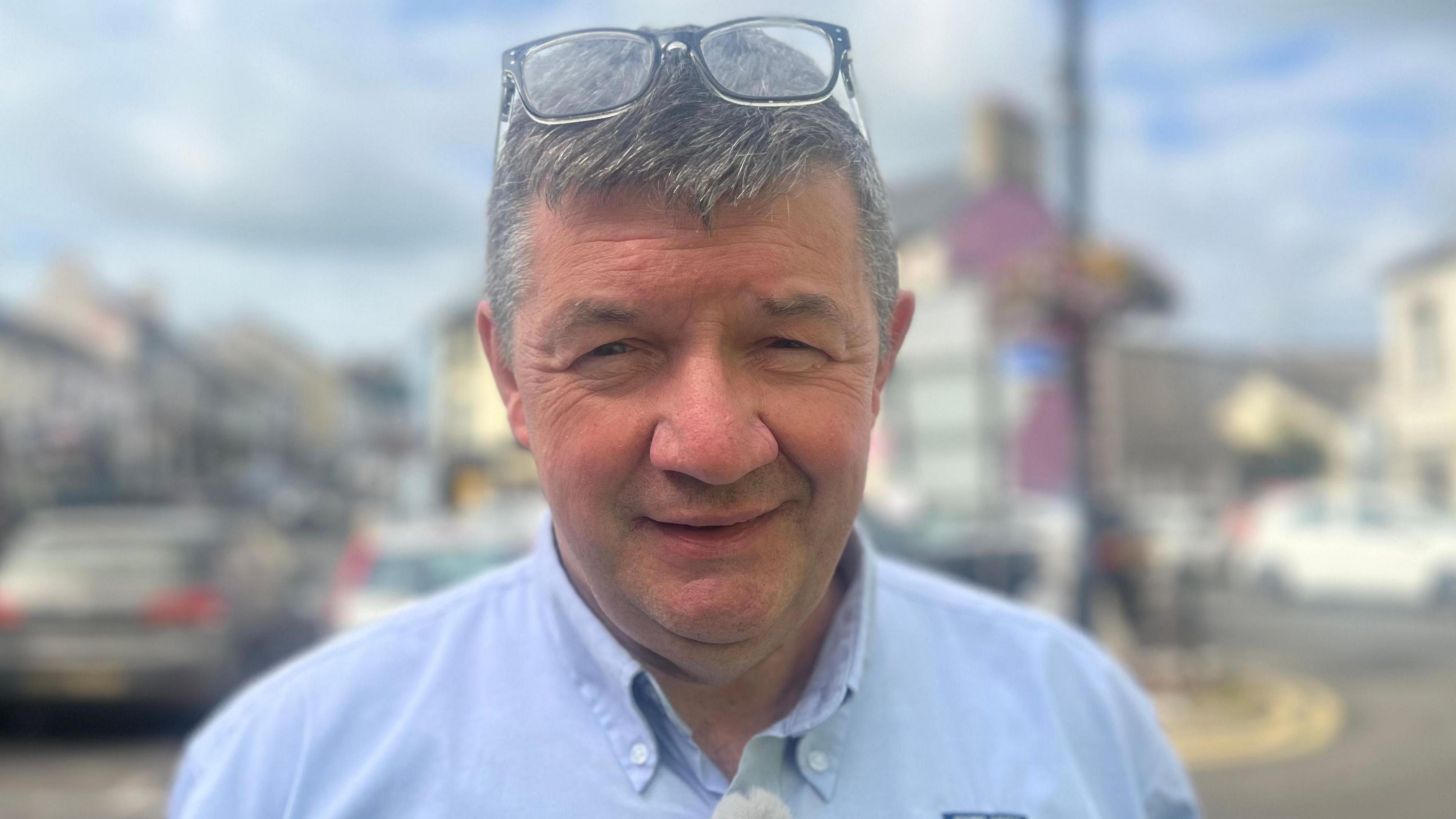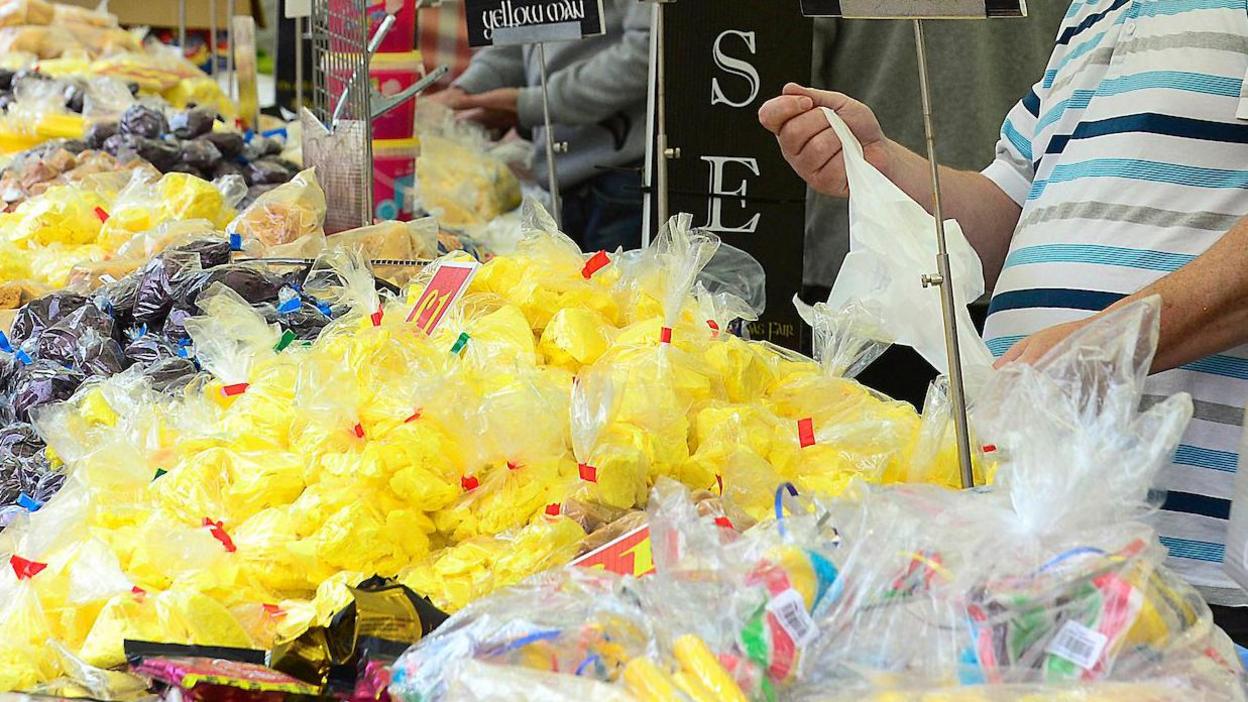'Business as usual' at the Ould Lammas Fair in Ballycastle

Councillor Cara McShane says the council had been "working extremely hard" on the fair
- Published
It's "business as usual" at this year's Ould Lammas Fair in Ballycastle, despite some changes to the layout of the event.
The fair traditionally gets underway on the last bank holiday of the summer, with a number of build-up events held over the weekend.
Causeway Coast and Glens Borough Council has said an estimated 100,000 people are expected over the four days.
Fairhill Street in the centre of the town has been closed since last year after concerns were raised about the integrity of a derelict hotel building.
The council has placed shipping containers outside a derelict hotel, the Antrim Arms, in the Diamond area in the centre of the town, to protect pedestrians from falling debris.
Councillor Cara McShane said the council had been "working extremely hard" to ensure that all of the logistical challenges are overcome.
"It has been not without challenge, given the closure of Fairhill Street [due to the shipping containers], where traditionally the horse trading would have taken place.
"The Antrim Arms is just beside the Fairhill so the council has opened up a pedestrian access."
Meanwhile, a new leisure centre is being built where the fair's amusements are normally located - so they have been moved to private land on the seafront.
"But it's business as usual and we need to ensure best foot forward," Ms McShane said.
She added that trading licencing and concessionary licencing have increased overall, which the council is pleased about.

Shipping containers have been positioned outside the Antrim Arms hotel
Paul Cochrane has been trading in Ballycastle for more than 30 years and is a former chair of the Chamber of Commerce.
"Traditionally, sometimes, people would come home for the Ould Lammas Fair more than Christmas, local families come home because it is such an iconic weekend for everyone," he said.
"It's very, very important and even more important now with the economic times that we're in."

Paul Cochrane says the fair is "very important" for Ballycastle
Mr Cochrane said that local businesses are very good at "working around the economic situation".
"Obviously this year the situation with the Antrim Arms building isn't ideal," he added.
"I think going forward there has to be a bit more communication with our local council, with the local people and with the local businesses, because everything develops and goes on.
"I think going forward it will help with the fair."
The council is planning to hold a consultation event with the Ballycastle Town Forum immediately following this year's event.
'Ballycastle is open for business'
At Boyle's Spar on Ballycastle's seafront they're expecting a busy few days, with extra staff brought in to meet the demand.
But the shop's owner, Aidan Boyle, said businesses aren't as reliant on the fair as they once were.
"Well not so much anymore, I would say back in the olden days it was a key factor but the season now has elongated.
"Ballycastle is open for business right through September, October, November, December – there is now no off season in Ballycastle."
He described the fair as a great event, which showcases Ballycastle.
And while visitors can still expect to see the traditional yellowman and dulse on sale at the fair's stalls, Aidan has noticed a change in the retail offering.
"Those special things, I remember my mother used to get her towels and her bedding at the Ould Lammas fair, unfortunately that's just all online now and things like that.
"Retail has evolved everywhere and I can understand people remembering and reminiscing about those things, but sometimes those street traders just aren't there anymore."
- Published24 August 2024

- Published30 August 2022
